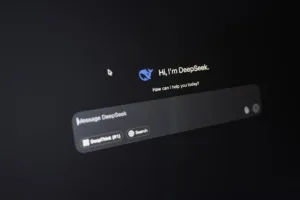
A recent security audit has revealed critical vulnerabilities in Moodle, the widely adopted open-source learning management system (LMS). These flaws enable attackers to bypass core security mechanisms through Server-Side Request Forgery (SSRF) and privilege escalation techniques. The most severe issue, CVE-2024-43430, carries a CVSS score of 9.8 and affects the quiz module API, while a separate Time-of-Check to Time-of-Use (TOC-TOU) vulnerability allows DNS manipulation attacks1.
Technical Breakdown of Moodle Vulnerabilities
The CVE-2024-43430 vulnerability stems from improper access controls in Moodle’s external_api.php endpoints. Attackers can craft HTTP requests to gain elevated privileges, particularly targeting the quiz module functionality. GBHackers researchers demonstrated that unauthenticated users could manipulate gradebooks through specially constructed API calls1.
The TOC-TOU SSRF bug presents a more complex attack vector. As shown in the Python proof-of-concept from security researchers, attackers can exploit race conditions in DNS validation:
import requests
moodle_url = "https://victim-moodle.com/calendar/view.php?url=http://attacker-controlled.example"
response = requests.get(moodle_url) # Bypasses DNS validation due to race conditionThis vulnerability becomes particularly dangerous in cloud environments, where it could lead to AWS IMDSv1 exploitation and subsequent credential theft2.
Third-Party Plugin Risks and Supply Chain Concerns
Moodle’s extensive plugin ecosystem introduces additional attack surfaces. The “Attendance Plugin” (CVE-2023-49921) serves as a cautionary example, where outdated jQuery libraries enabled cross-site scripting attacks. Security analysts recommend using tools like SonarQube for static analysis (SAST) and OWASP ZAP for dynamic testing (DAST) of third-party plugins3.
Recent incidents involving the “Chatbot” plugin (CVE-2024-45562) highlight the risks of excessive permissions in LMS environments. The plugin’s unnecessary write-access to gradebooks created a potential vector for grade manipulation attacks.
Mitigation and Hardening Strategies
Moodle administrators should immediately upgrade to version 4.4.2 or later, which includes patches for these vulnerabilities. Additional hardening measures include:
- Implementing strict Content Security Policies in .htaccess:
Header set X-Content-Type-Options "nosniff" Header set Content-Security-Policy "default-src 'self'" - Disabling IMDSv1 in AWS environments
- Regularly auditing plugins using moodle-plugin-ci
- Enforcing role-based access controls (RBAC)
For organizations using AI-integrated plugins, researchers recommend implementing LLMSecOps frameworks that include Elasticsearch monitoring for prompt injection attempts and specialized incident response playbooks4.
Comparative LMS Security Landscape
| Platform | Unpatched CVEs (2024) | Notable Risks |
|---|---|---|
| Moodle | 12 | Plugin vulnerabilities, TOC-TOU bugs |
| Canvas | 5 | API key exposure via LTI tools |
| Blackboard | 9 | Weak SAML assertions (CVE-2024-2111) |
The data shows Moodle currently carries the highest vulnerability burden among major LMS platforms, though all systems require vigilant patch management5.
Conclusion and Future Considerations
These Moodle vulnerabilities demonstrate the evolving challenges in securing complex educational platforms. The combination of core system flaws and plugin risks creates a multi-layered attack surface that requires comprehensive defense strategies. Organizations should prioritize immediate patching, implement the hardening measures outlined above, and establish continuous monitoring for suspicious activity.
Future security developments in the LMS space will likely focus on AI integration risks, particularly around plugin hallucination and prompt injection attacks. The recent case of GPT-4-generated phishing emails bypassing Moodle filters underscores this emerging threat vector6.
References
- “Moodle Core vulnerabilities Allow Attackers to Evade Security Measures”, GBHackers Security
- OWASP Top 10 for Large Language Model Applications, OWASP Foundation
- Snyk Vulnerability Database: Moodle, Snyk
- OpenAI Data Usage Documentation, OpenAI
- Moodle CVE Details, CVE Details
- “AI bots hallucinate software packages”, The Register




